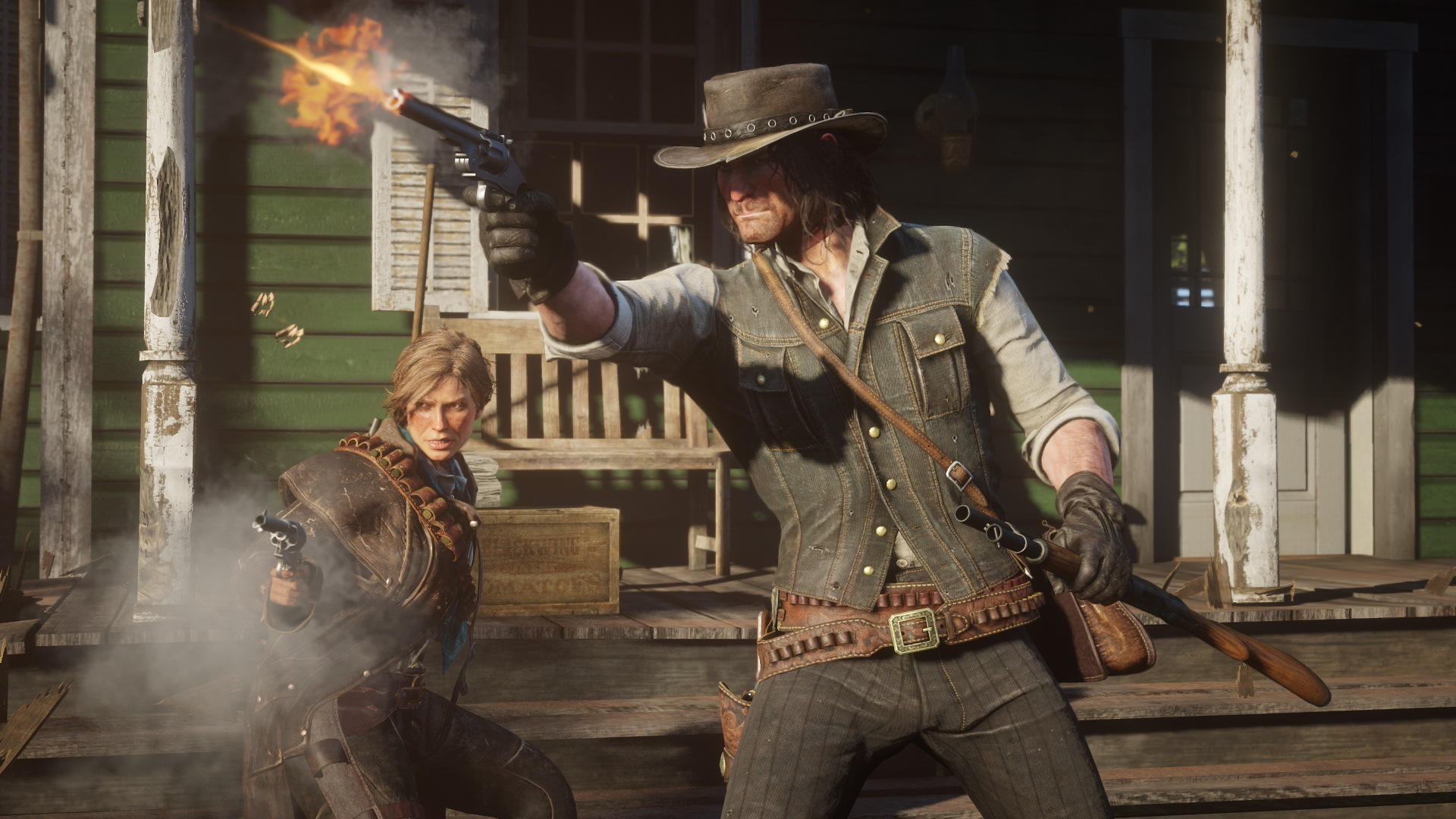AMD FSR 2.0 mods start to flood in as gamers can’t wait for frame rate boosts
Workaround mods have delivered unofficial support for Cyberpunk 2077, Red Dead Redemption 2 and more

AMD’s FSR 2.0 (FidelityFX Super Resolution) is still relatively fresh to the gaming scene, and hardly in any games at all yet – but modders have taken the situation into their own hands in some cases, when it comes to unofficially pushing support for the frame rate boosting tech.
We’ve already seen a mod for Cyberpunk 2077 from the amusingly-named modder PotatoOfDoom, which essentially leverages DLSS support to bring in FSR 2.0, and that workaround is now also live in mods for Red Dead Redemption 2 and Dying Light 2. The latter were worked on by other modders on Nexus Mods, but still based on PotatoOfDoom’s original mod.
As PC Gamer reports, other gamers are now trying to employ this technique with the likes of Metro Exodus: Enhanced Edition and Guardians of the Galaxy, and doubtless further DLSS-supporting titles to follow.
So how good are the results from these sort-of-thrown-together mod solutions? Well, they’re not ideal as you might anticipate, although a performance boost is certainly delivered, even if the upscaled image is noticeably softer compared to running in the native target resolution (and there are some minor issues with artifacts as well).
With full FSR 2.0 support, the difference in quality (to native resolution) is barely noticeable and closely rivals DLSS 2.0 in terms of upscaling chops.
Of course, we wouldn’t expect modders to be able to achieve the same results, and it sounds like what they have done here works well enough, and could certainly act as a stopgap while waiting for developers to get on the case with bringing in FSR 2.0 support.
Analysis: Patience is a virtue, but not when it comes to frame rates…
This is a measure of just how keen gamers are to get FSR 2.0 support for the titles they enjoy, while at the same time, it certainly highlights a degree of impatience about getting wider support for the Nvidia DLSS rival. So far, only three games support FSR 2.0 officially (Deathloop, God of War, and Farming Simulator 22), but more are promised to be inbound soon.
Sign up for breaking news, reviews, opinion, top tech deals, and more.
Now, there are some big hitters on the incoming list – like Hitman 3, Microsoft Flight Simulator, and EVE Online – but also a lot of relative gaming minnows in all honesty. So it’s not too surprising that gamers with modding chops are taking matters into their own hands to at least see the kind of results which are possible with workarounds.
It’s going to take time to build up a library of games that officially support FSR 2.0, of course – just look at how long it took Nvidia to push forward with DLSS support. Team Green, of course, has a big head-start in that respect, seeing as DLSS has been around for coming on four years now (believe it or not).
There are key advantages AMD has with FSR 2.0 being open source and freely available, with promises already having been made about how easy it is to implement for games that already support DLSS 2.0. In fact, AMD claims that for those titles, FSR 2.0 could be bolted on in just a matter of a few days (best-case scenario, but still, you get the general idea – it can happen very fast given the will). And these modding efforts appear to back up that assertion, what with them coming together pretty speedily.
Other fast routes to FSR 2.0 adoption include devs with games built on Unreal Engine (UE 4 or 5) that can use AMD’s plug-in, and so before too long, we’re hoping to see more support coming through quite quickly – in much faster fashion than the timeline witnessed with DLSS, for sure. That doesn’t mean Team Red hasn’t still got some considerable ground to make up, but it should be able to cover that turf with quite a turn of pace, if these early signs and promises are anything to go by.
AMD will also be pushing its other big advantages over DLSS, namely a wider coverage for graphics cards with FSR, including Nvidia models – as opposed to DLSS which requires an RTX GPU – and also the maintenance of FSR 1.0 as an admittedly lower quality solution than FSR 2.0, but one which allows for lesser-spec GPUs to still benefit from the frame rate boosting tech.
Darren is a freelancer writing news and features for TechRadar (and occasionally T3) across a broad range of computing topics including CPUs, GPUs, various other hardware, VPNs, antivirus and more. He has written about tech for the best part of three decades, and writes books in his spare time (his debut novel - 'I Know What You Did Last Supper' - was published by Hachette UK in 2013).